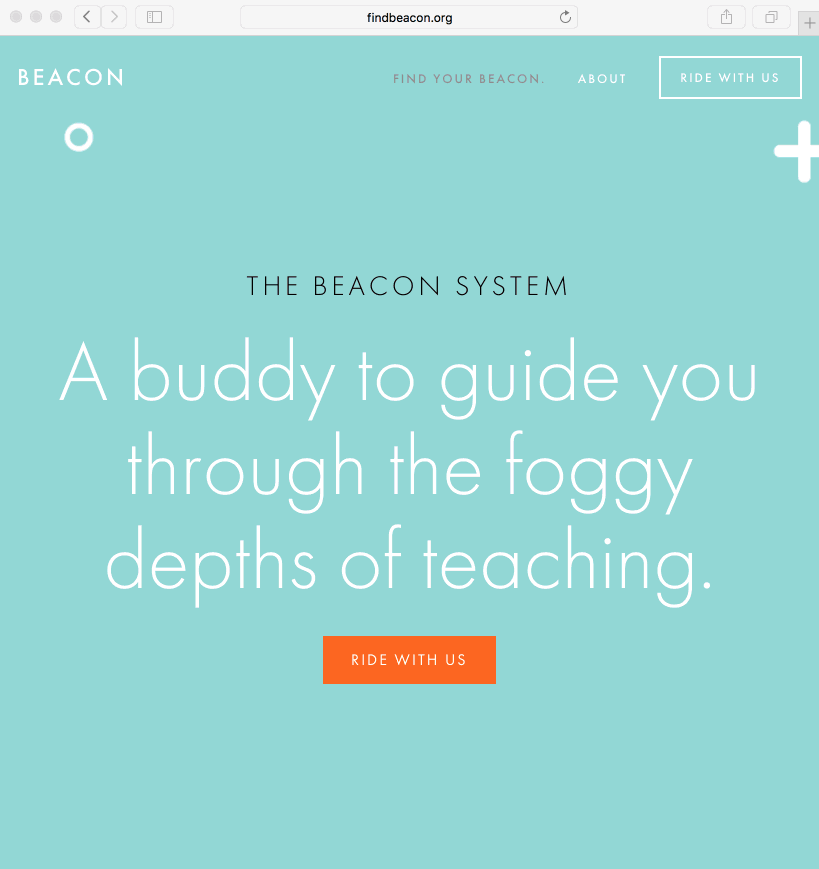Teaching is hard.
As a graduate student in the MFA Design for Social Innovation program at The School of Visual Arts in NYC, I studied the U.S. Education System. From the launch of Common Core Curriculum and the effects of standardized testing on students, teachers, and parents, to alternative school models for the 21st century, I took a hard look at the state of our schools.
The Big Problem
Though a hot topic of debate in the education realm over the past few years, sources have claimed that as many as 1/2 of all new teachers in the United States will leave their schools (or quit teaching entirely) within their first 5 years of teaching due to the lingering effects of burnout. Besides the effects to the teachers themselves, this phenomenon costs school districts large sums of money and creates instability in classrooms for children and faculty alike (NPR Education).
The Approach
Teacher burnout can be combatted head-on by implementing mentorship programs for new teachers. Formal induction programs are an excellent way to add extra support to a new teacher's career early on.
However, programs like this are often expensive for schools to implement and maintain, and will often add more work to teachers that already have a full plate on their hands, with required checkpoints.
Studying the successes and shortcomings of existing induction programs, I looked for an alternative to formal programs that could be more cost effective for schools to implement, have the same benefits for the teachers, and reduce the workload on already busy faculty and staff.
Key Insights
K12 teachers are busy. They don't have time for extra activities and will steer clear of adding more to their days, unless the activities serve multiple purposes.
K12 teachers often feel isolated. They spend most of their days around students, separated from other teachers.
Teachers often feel like they have a calling to teach, giving them the personal conviction to work hard, even when they face tough environments and grueling hours.
Technology can make teachers' lives more difficult if it isn't integrated properly into schools, adding "just another thing to keep up with" to their day.
Teachers' schedules are inconsistent and often change as the day progresses. They also different vastly from school to school, so a program needs to be flexible enough to fit all models of schools.
13
Hours of interviews with Subject Matter Experts in and around the field of education.
19
In-depth conversations with active and retired teachers, not including 2 general surveys sent out to a broader teaching audience.
2
Pilot programs tested out in small groups in North Carolina and Georgia over the course of the research.
Uber, but for teachers?
The first prototype, named SchoolBus, paired two teachers together who knew of each other but had never really met with a parent volunteer who drove them to-and-from work each day for 3 days during the week. The parent volunteers also brought the teachers coffee and breakfast snacks.
____
Photo: Ruth (left) and Rae (right) of North Carolina riding to school together with SchoolBus.
#BeaconCarpool
Challenge
After discussing the shortcomings of the initial prototype with all of the participants, SchoolBus relaunched as Beacon, an open-source toolkit for teachers to self-organize carpooling groups at their schools. This kicked off with a carpool challenge on social media, where we asked teachers to ride to school together for a week and see what happened.
____
Photo: Teigan (left) and Ann (right) of Georgia grabbing coffee on their way to school together.
Scale it all up with a toolkit
Beacon was piloted in Spring of 2015 in North Carolina and Georgia on a small scale. To make it more accessible and scalable, a website was launched where teachers and administrators could download all of the materials they would need to start programs like Beacon at their own schools.
____
Photo: A screen capture of the Beacon website before it was taken down in late 2016 due to an inability to maintain it by myself.




